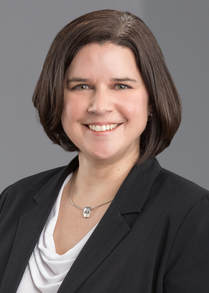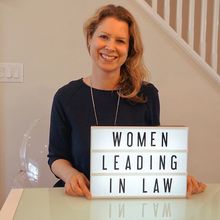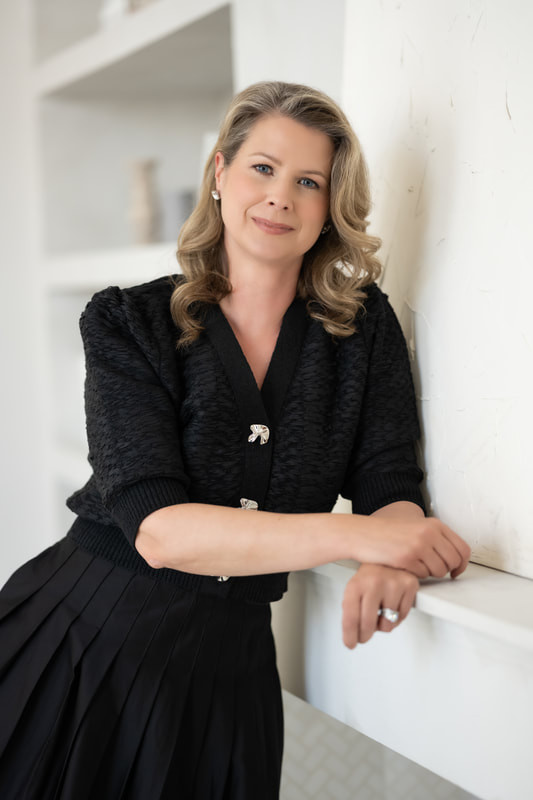 The next lawyer to be profiled in the Women Leading in Law series is litigator Laurie Livingstone. What I especially like about this post is that Laurie not only talks about her own experiences and accomplishments, she has also used this platform to pay-it-forward and praise other amazing women lawyers coming up behind her. 1. Tell me a little about your practice or business: I am a litigator based in the Calgary office of Cassels Brock & Blackwell LLP but I practice in both Alberta and Ontario. Technology and teamwork allow me to simultaneously practice in both provinces, which I love. My practice is a mix of complex commercial litigation, administrative law and appellate advocacy. If it’s a case with issues that are going to make your brain hurt – it’s my kind of litigation! Quite by happenstance, I have also developed a niche practice in the area of voluntary associations and self governing organizations. That practice has given me the opportunity to argue a number of interesting cases involving issues of jurisdiction, governance, and discipline in political parties, religious organizations, educational institutions, and sport associations. 2. Why did you go to law school? I often, jokingly, say that I ended up in law school by picking ‘not math’ at every educational fork in the road. That’s not entirely false; I’m no math whiz and I wasn’t someone who dreamed about being a lawyer from a young age. I moved across the country to study at Dalhousie University when I was 17 and, at that point, I had no idea what I wanted to be when I grew up. Over the course of my undergraduate degree, I ended up spending a lot of time in the Sir James Dunn Law Library doing researching for sociology papers. I loved the atmosphere in that library; all the law students working away in their carrels and the study groups huddled together in the glass meeting rooms. It felt like a place I wanted to be, so I started to think about law school. In the bigger picture, I think a large part of what drew me to law, and in particular to advocacy, is my affection for words. I’ve always had a deep love for words and for their power. Words can cut sharper than any blade and soothe better than any balm. There is an art to stringing words together. Done well, it can bring order to chaos and can change the way people think. It’s the magic of creating something coherent from the raw facts and law in each case that keeps me engaged and excited about the practice of law. 3. How did you get to where you are today? Design? Chance? Both? It definitely wasn’t by design! I think chance manifesting itself in the form of curiosity and a willingness to work hard, has allowed me to take advantage of every opportunity that has come my way. As a student, I was always curious about what senior lawyers were working on. I would regularly ask if I could tag along to watch arguments in interesting cases, even if there wasn’t a way for me to immediately assist on the file. That investment of non-billable time often lead to me later becoming involved in those interesting cases. My curiosity and default to say “yes” to every opportunity, also resulted in the tremendous experience of doing an external rotation in criminal law while I was an articling student. The months I spent at Eddie Greenspan’s office watching Eddie, Marie Henein, Mike Lacy, Melanie Dunn (now The Honourable Justice Dunn) and other advocates at work was amazing. It solidified my desire to be a litigator. A large part of my ability to thrive in this profession has also been because I’ve had wonderful champions in my corner. In particular, I have to recognize Ian Blue, Q.C. and Arthur Hamilton. They took me under their respective wings when I was a student and they have been giving me opportunities and advocating for me ever since. I work in male dominated areas of law and, over the course of my career, it has been far more common than not for me to be the only woman in the room as well as the youngest person in the room. Having senior male practitioners who treated me as an equal and who insisted that clients, courts, opposing counsel, and other partners in the firm did the same, was a huge factor in my career development and in me not (yet) becoming part of the depressing statistic of women who have left private practice. 4. What is your most significant achievement? What are you proud of? What I’m most proud of is having had a hand in spotting, and early-on nurturing, the talent of some women who have become fantastic practitioners and true leaders in the profession. What seems like a lifetime ago, I fought to hire Danielle Robitaille into the Cassels Brock student program. She has proven my declaration “she’s a real litigator” to be true over and over again in her brilliant work at Henein Hutchison LLP. Andrea McEwan, who is a rising star in estates litigation in Toronto, is another woman I am delighted to have worked with in her student years. Andrea remains the only student to ever hand me a draft that I didn’t put a single red pen mark on. I’m also thrilled to see Caryn Narvey - an amazingly talented woman I had the opportunity to work with when she was an associate in Calgary - taking the in-house world by storm. Caryn is an absolute star in the McDonald’s Canada legal department and was recently recognized as one of their top employees in the world when she received the prestigious McDonald’s President’s Award. I could not be more proud of these amazing women. In terms of cases that had an impact, I am very proud of the work Arthur Hamilton and I did representing an intervener before the Commission of Inquiry in the Sponsorship Program and Advertising Activities (also known as the Gomery Commission). Despite working with capped hours and only being paid something like $75/h under the intervener funding allowance, we put together a tremendous written argument at the conclusion of the 136 days of hearings. When the report was released, we saw a lot of our work reflected in the conclusions and even in some of the phrasing choices. I remember standing at the top of the stairs leaving the Centre Block of Parliament Hill just after 5pm on the day the report was released. I was exhausted (we had been in a lock-up well before dawn to read the report and we spent the rest of the day briefing the future Prime Minister and his caucus on its contents) and I was, momentarily, unable to take another step as the realization that we were in the middle of history washed over me. We knew the government would fall as a result of that report and we knew we had a hand in bringing the truth behind a scandalous misuse of public funds to light. It was tremendously satisfying and remains work that I am very proud of. 5. What are some key challenges and opportunities for women in law? I think the challenges remain largely the same as they’ve always been. Women and minorities are underrepresented at the highest levels of the profession and that results in a lack of diversity of thought and further entrenchment of existing barriers, stereotypes, and biases that are often unconscious. Even at a firm like mine that is completely committed to achieving a minimum of 30% female equity partners nationally, in the Calgary office where I work, there are no female equity partners and we currently fall short of even achieving 30% of lawyers in this office being women. That certainly wasn’t by design but unless you are conscious and vigilant about it, diversity won’t manifest itself in an environment that isn’t already diverse. Women also still face the double bind of being labelled “weak” if they are perceived to be acting in a traditionally feminine way and as a “bitch” if they carry themselves with the same confidence as their male colleagues do. University of Calgary Law School Professor Alice Woolley and her colleague Elysa Darling published a paper last year entitled ‘Nasty Women and the Rule of Law’ that examines how we talk about women lawyers and why it matters. It’s a great paper that digs into the intersection between sexist stereotypes and the lawyer’s role. The paper doesn’t solve the perception problems faced by women lawyers but it’s an insightful examination of their roots. Enough of that ... on to the opportunities! While the profession has been stubborn to change, over the course of my career I’ve seen a big shift in the number of people – men and women – who at least want to see change. That desire for change means we are now seeing more women in leadership positions in firms and, as we move beyond it being just one token woman on key firm committees, women are finding their voices, being heard, and are creating more opportunities for other women to lead. Clients are also demanding diversity from firms and within the teams working on their files. All of those women that were driven out of private practice and who moved to in-house roles are now controlling the flow of work and forcing change from the outside. It’s fantastic and it’s creating more opportunities for young women in private practice to gain the experience they need to rise through the ranks. More women on the client side also makes business development for female lawyers a little easier. Finally, reforms to the judicial appointment process have gone a long way toward levelling the playing field for women and minorities. Being appointed to the Bench is now more about your qualifications and less about who you know. That is huge. Recent appointments to the bench have been more diverse and I’m already seeing change in courtrooms. As the old boys are less and less likely to be appearing before their golf buddy or another old boy who will let them get away with belittling opposing counsel because of her age, gender, or accent, courtrooms are becoming less hostile places for women and minorities to advocate on behalf of their clients. I believe that as each glass ceiling is smashed, it creates a longer runway for the next generation of women to gain momentum before they start hitting barriers. I believe that increased momentum is, and will continue to, speed up the rate at which we smash through each successive barrier and even more rapid change will follow. 6. What advice would you give a woman starting her legal career? Seek out champions, not just mentors. Also, demand that your mentors become your champions. While I might not have chosen these exact words, I agree with this quote I recently saw from advertising executive Cindy Gallop: “I want women to strike the word ‘mentor’ from their vocabulary and instead, seek out champions. ‘Mentor’ implies touchy-feely, chatchatchat, shoulder to cry on, warm fuzzies. Fuck that. Women need champions. We need what men have always had, people willing to go out on a limb for us.” I see young women in the legal profession being mentored but not championed all the time. The partners they work for feed them good work, teach them well, and respect them immensely. But when push comes to shove, many of those partners won’t risk any of their own political capital to advocate for the women they work with. They stay silent as those female associates are denied bonuses, paid at the low end of their compensation bracket, passed over for partnership, and overlooked when industry award nominations are discussed. Male associates rarely suffer the same fate. If a male associate is ‘one of the boys’ he will have champions insisting that he deserves to be paid above market and that he is destined to be a great leader, regardless of whether his performance warrants such praise. Mentors are great but champions are needed to advance your career, especially in private practice. Seek out champions. ------------------------------------------------------------------------------------------------------------------------------- Thanks Laurie for your candid advice and for taking the time to participate in this series! ICYMI: Previous posts profiled Renatta Austin, Janis Criger, May Cheng, Nicole Chrolavicius, Charlene Theodore, Dyanoosh Youssefi, Shannon Salter, Bindu Cudjoe, Elliot Spears, Jessica Prince, Anu K. Sandhu, Claire Hatcher, Esi Codjoe, Kate Dewhirst, Jennifer Taylor, Rebecca Durcan, Atrisha Lewis, Vandana Sood, Kathryn Manning, Kim Hawkins, Kyla Lee, and Eva Chan. Sign up to have these profiles sent directly to your email address and stay tuned for the next post soon! I started this blog series because I was tired of hearing about women leaving law and wanted to hear about women leading in law. The "Women Leading in Law" series focuses on good news stories and highlights amazing women succeeding in the legal profession. Each post includes the profiled lawyer's answers to six questions. Prepare to be inspired! The series will continue until December 2018.
0 Comments
Your comment will be posted after it is approved.
Leave a Reply. |
Erin C. Cowling is a former freelance lawyer, entrepreneur, business and career consultant, speaker, writer and CEO and Founder of Flex Legal Network Inc., a network of freelance lawyers.
Categories
All
Archives
December 2022
|
|
(C) 2014-2024 Cowling Legal. All rights reserved.
|
Please note I am not currently practicing law.
Information on this website does not constitute legal advice and is for informational purposes only. Accessing or using this website does not create a solicitor-client relationship. See website Terms of Use/Privacy Policy. info@cowlinglegal.com
3080 Yonge Street, Suite 6060 Toronto,ON M4N 3N1 (appointment only) |







 RSS Feed
RSS Feed
